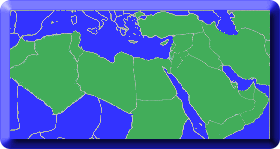
Topics in Middle Eastern and North African Economies
Document Type
Article
Publication Date
9-1-2014
Journal Title
Topics in Middle Eastern and North African Economies
Volume
16
Publisher
Middle East Economic Association and Loyola University Chicago
Abstract
Foreign direct investment (FDI) is a crucial ingredient of the global economy. In the Persian Gulf, FDI is a major source of economic growth, employment, technology, and productivity. Because of these benefits, attracting FDI in the Persian Gulf region has become a key element of strategies promoting economic development. Natural resources and environmental policy in host countries may affect the FDIeconomic growth relationship. There has been much dispute as to whether economies that are open and those with more natural capital and lax environmental policy grow faster. This paper examines whether natural resources and environmental policy in Persian Gulf countries alter the relationship between FDI and Persian Gulf’s economics growth. We estimate a linear dynamic panel-data model using data from Persian Gulf countries over the period 1980–2012.The results show that the impact of arable land, forest area and the interaction between FDI and environmental policy on economic growth is negative, but renewable internal freshwater resources flows, mineral depletion and energy use have a positive effect.
Identifier
2334-282X
ISSN
2334-282X
Recommended Citation
Asghari, Maryam; Hilmi, Nathalie; and Safa, Alain, "FDI Effects on Economic Growth: The Role of Natural Resource and Environmental Policy". Topics in Middle Eastern and North African Economies, electronic journal, 16, Middle East Economic Association and Loyola University Chicago, 2014, http://www.luc.edu/orgs/meea/
Creative Commons License

This work is licensed under a Creative Commons Attribution-Noncommercial-No Derivative Works 3.0 License.
Copyright Statement
© 2014 the authors



Comments
Presentation of the articles in the Topics in Middle Eastern and North African Economies was made possible by a limited license granted to Loyola University Chicago and Middle East Economics Association from the authors who have retained all copyrights in the articles. http://www.luc.edu/orgs/meea/volume16/meea16.htm